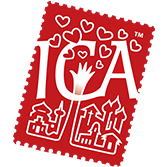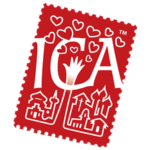Domestic Adoption
Birth Mother Support
Pregnant Client Questions and Answers
- If you are unable to parent, the adoptive family will give an opportunity of dreams that you would have for the child.
- Because it is a better decision than abortion.
- Because each decision you make is a permanent one that you cannot reverse.
Because you can choose a family for the child. - Because even if it seems like the right thing to do right now, alternatives do exist to help you with medical needs, housing, food and other things.
- There is good free counseling available to you so you can feel unpressured and make an informed decision.
- You will rest knowing the baby will be alive and well taken care of…full of possibilities, hope for a future and well supported.
- Absolutely
- No. We have their fingerprints taken to make sure.
- Yes. Choose a family that is agreeable to this.
- Yes, if you want.
- Yes, when you and the child are discharged from the hospital.
- It is all done legally and at no charge to you.
- All counseling is free and available weekly for you. If you need help with getting to appointments, that is also available.
International Adoption
Foster Care
Unaccompanied Refugee Minor (URM) Foster Care
Counseling Center
Trafficking Victim Assistance Program
Terms to Keep in Mind
Kinship Care is the care of children by relatives or, in some jurisdictions, close family friends (often referred to as fictive kin).
A Refugee is a person who has been forced to leave their country in order to escape war, persecution, or natural disaster.
A foster child is a minor child who has been taken into state custody and placed with a state-licensed adult, who cares for the child in place of their parent or guardian
Foster care (also known as out-of-home care) is a temporary service provided by States for children who cannot live with their families. Children in foster care may live with relatives or with unrelated foster parents. Foster care can also refer to placement settings such as group homes, residential care facilities, emergency shelters, and supervised independent living.
Adoption is the official transfer through the legal process of all parental rights to a child to the adoptive parents.
Adoption Agency is an organization that is licensed in the state or states where it transacts its business, which to assist in placing children needing parents with adoptive parents that are looking for children
Adoptive Placement is used to describe the point in time when your child comes to live with you in your home or care for the purpose of adoption
Adoptive Parent is a term used to refer to one or both parents that are seeking to adopt, and parents that have already adopted
Affidavit is a formal legal document containing written statements of legal significance that are being sworn to under oath by the author of the document, who is known as the “Affiant.” The act of signing the Affidavit, and of swearing under oath that the statements it contains are true and correct to the best of the knowledge of the Affiant, is done in the presence of a Notary Republic.
Home Study is a written report containing findings of the social worker who has met on serval occasions with the prospective foster or adoptive parents. The purpose of the home study is to help determine whether the family is qualified to foster or adopt.
Caseworker is also sometimes referred to as “Adoption Worker” or “Social Worker.” These are the individuals that prepare adoption home studies for prospective adoptive parents, assist in providing post-placement supervision of adoptive families once they have received their child, and counsel adoptive families to help them adapt to the changes in their lives as the result of adoption.
Closed Adoption – in this adoption, the birth family and the adoptive family do not share any identifying information about them, and do not communicate with each other, either before or after the placement of the child except by photos and letters sent through the agency.
Disclosure is the release or transmittal of confidential information. A disclosure statement is a statement that discloses information in plain written language, that is easy to understand.
Domestic Adoption is an adoption that involves adoptive parents and a child that are citizens and residents of the United States
Finalization: the point when the court grants the Petition to Adopt of the adoptive parents and takes the necessary action to formally make the child a legal member of their family.
Hague Convention or Intercountry Adoptions – the Hague Convention on the Protection of Children and Co-operation in Respect of Intercountry Adoption (Convention) is an international agreement to safeguard intercountry adoptions.
Central Authority in each country handle two-way communications with domestic courts, administrative agencies and foreign Central Authorities. Not only did the Abduction Convention establish Central Authorities that facilitated two way communications, but it also gave a whole laundry list of additional obligations to these new authorities with language requiring Central Authorities to take “any and all actions” to secure the goals of the treaty and cooperate with other Central Authority’s to do the same.
Intercountry Adoption Accreditation and Maintenance Entity (IAAME) is designated as an accrediting entity to accredit or approve adoption service providers to provide intercountry adoption services.
U.S. Citizenship and Immigration Services (USCIS) is the federal agency that oversees lawful immigration to the United States. We are a component of the Department of Homeland Security. We manage the first step in the process for U.S. citizens to adopt children from other countries.
To determine the child’s eligibility for classification as a Convention adoptee. The U.S. citizen prospective adoptive parent files the petition to finalize the immigration process of a child who habitually resides in a Convention country. The petitioner must have an approved, valid Form I-800A, Application for Determination of Suitability to Adopt a Child from a Convention Country, to file Form I-800.
Refers to a Hague-authorized adoption agency that oversees the six adoption services to ensure they are performed properly and ethically in compliance with the Hague Convention on International Adoption.
Refers to a person or an organization on which a primary provider relies to carry out one or more of the adoption services. A supervised provider can be an agency, person, or other non-governmental entity, including any foreign entity.
Resource Aid
ICA has Resources we would love to share with you! Please let us know what you’re looking for and an ICA Staff member will be in touch with you shortly.





PUBLIC COMMENT OPPORTUNITY, The Intercountry Adoption Accreditation and Maintenance Entity (IAAME), a national accrediting entity designated by the US Department of State to provide Hague Accreditation and Approval, invites the public to provide comment on intercountry adoption service providers seeking Hague Accreditation, Approval or Renewal. You are invited to provide comments through the U.S. Department of State – Bureau of Consular Affairs website: https://travel.state.gov/content/travel/en/Intercountry-Adoption/about-adoption-service-providers/hague-complaint-registry.html

PUBLIC COMMENT OPPORTUNITY, The Intercountry Adoption Accreditation and Maintenance Entity (IAAME), a national accrediting entity designated by the US Department of State to provide Hague Accreditation and Approval, invites the public to provide comment on intercountry adoption service providers seeking Hague Accreditation, Approval or Renewal. You are invited to provide comments through the U.S. Department of State – Bureau of Consular Affairs website: https://travel.state.gov/content/travel/en/Intercountry-Adoption/about-adoption-service-providers/hague-complaint-registry.html




